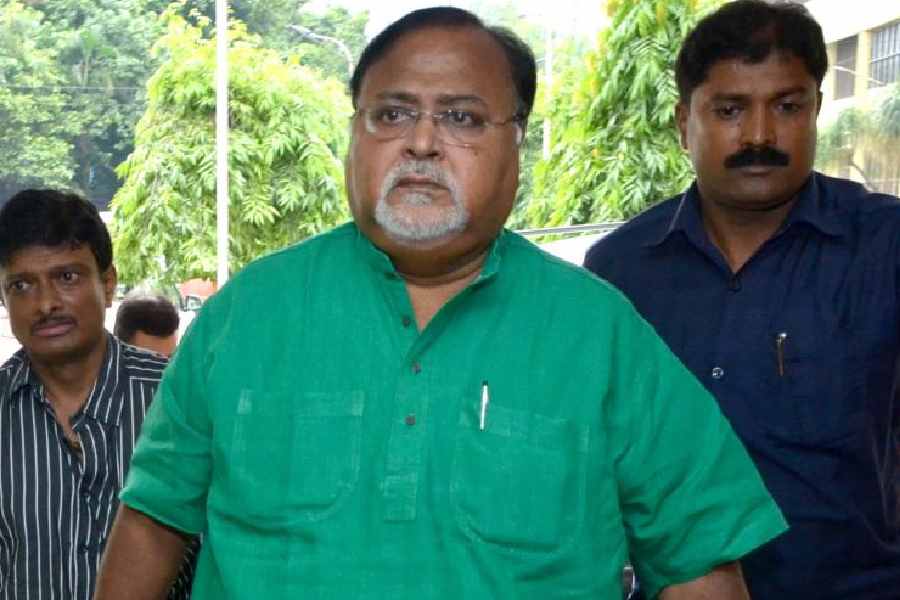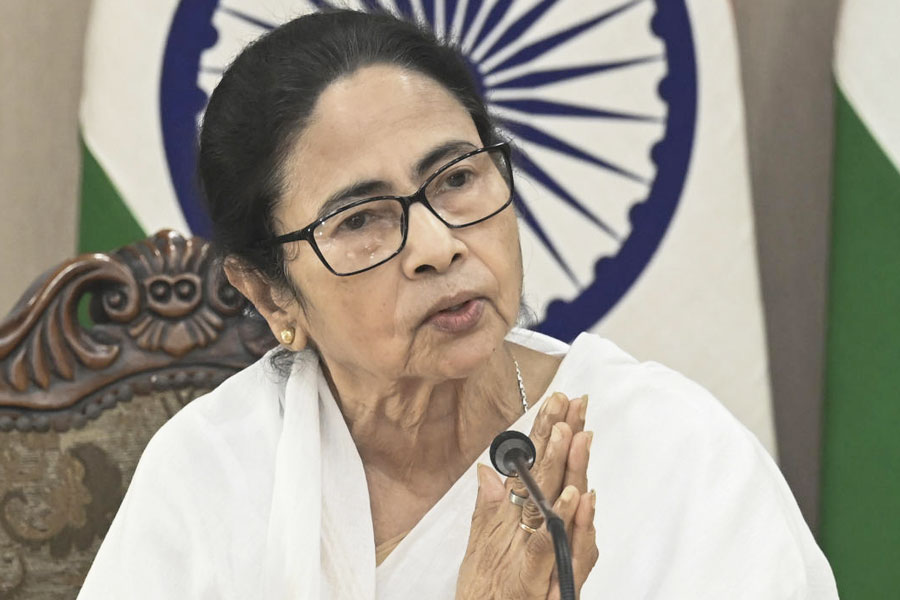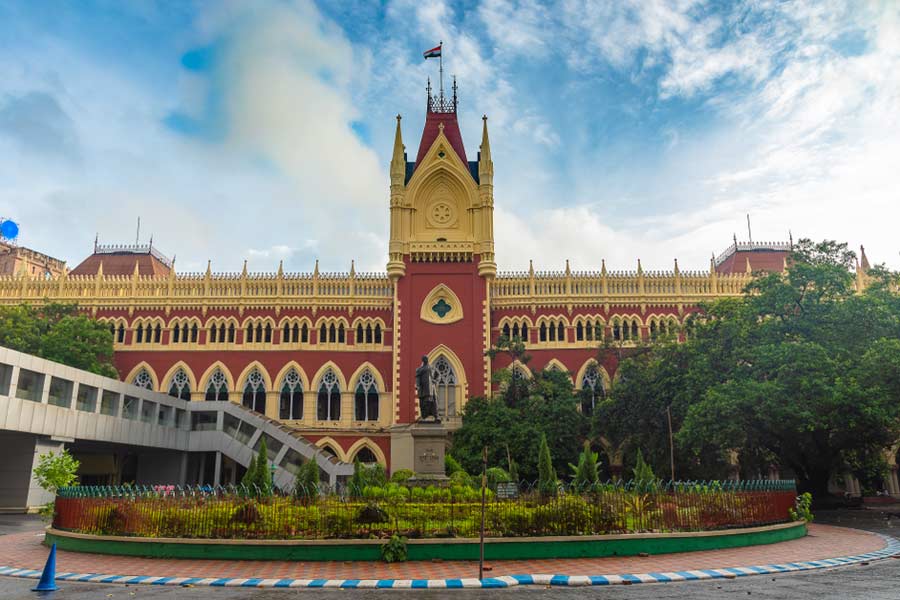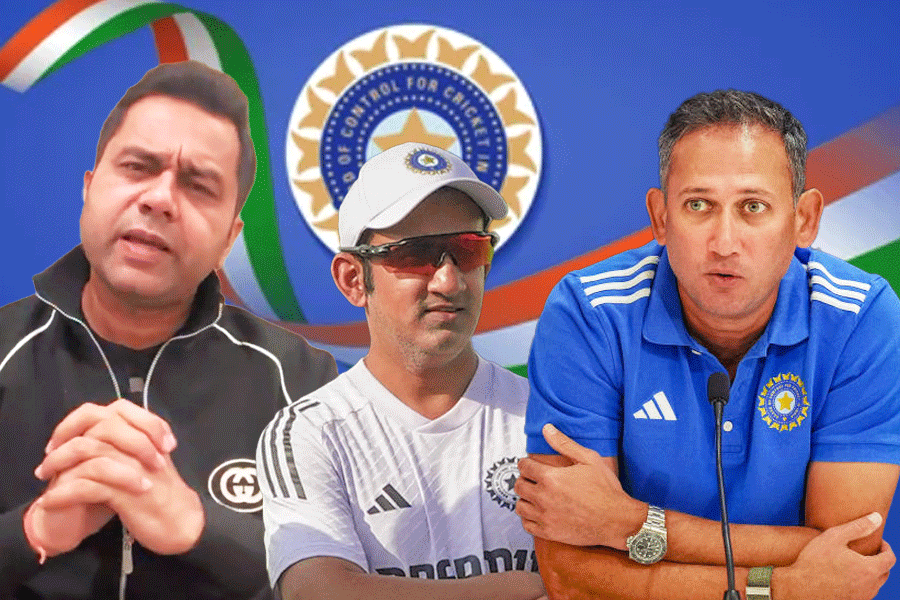The Supreme Court on Wednesday observed that granting bail to incarcerated former Bengal minister Partha Chatterjee in a money laundering case would send a wrong message to society.
A division bench of Justice Surya Kant and Justice Ujjal Bhuyan was dealing with an appeal filed by Chatterjee for bail. The court reserved its judgment.
The trial court and Calcutta High Court had rejected the Trinamool Congress leader's bail plea.
Stoutly opposing Chatterjee’s bail plea, additional solicitor general S.V. Raju told the Supreme Court that Chatterjee was facing a serious corruption and money laundering case and even if granted bail, he would continue to remain in jail as the CBI had also filed charges against him.
“Even if he is granted bail in the ED case, he won't come out. He is in custody in two other CBI cases,” Raju argued on behalf of the Enforcement Directorate.
Senior counsel Mukul Rohatgi, who appeared for the former Bengal education minister, said: “This is great sadistic pleasure! This is absolutely wrong! Everybody (several other accused persons) is on bail.”
However, Justice Kant heading the bench remarked: ”Everybody was not the minister, Mr Rohatgi! On the face of it, you (Chatterjee) are a corrupt person! What message you want us to send to society? That corrupt persons can get bail like this?”
Rohatgi, a former attorney general, argued that Chatterjee had already spent two-and-a-half years in jail and ought to be granted bail as the trial was yet to commence.
“So what? Crores (of rupees) recovered from your premises,” the Supreme Court said. In reply, Rohatgi said the premises from which the alleged money was recovered belonged to a company and not Chatterjee.
“He had de facto control of the company,” the bench observed, even while asking Raju to spell out the timeframe by which the investigations were likely to conclude so that the court balanced the rights of the accused and the prosecution.
Citing the records placed by the ED, the bench observed that properties were purchased in the joint name of Chatterjee and Arpita (Mukherjee), the alleged associate of the former minister.
“Cases are of 2022. You were a minister. Obviously, you are not going to order investigation against yourself. Investigation started only because of judicial intervention. Allegation is ₹28 crore have been recovered. What we are required to examine today is that if your release is likely to have a direct impact on the ongoing investigation, we should for the time being put a break on it,” the court added.
“But we can't do it indefinitely. The question is how he is going to obstruct/hamper the investigation."
Rohatgi then promised that the Supreme Court could set any precondition for his release.
Raju said if Chatterjee cooperated with the investigating agency, then the charges could be framed by the court in four months.
Rohatgi submitted: “I am only asking for bail in one case. He is right I am (Chatterjee) not going to get out, but that does not mean there can't be a start. I can report to their officers two or three times a week. Everybody in this case is on bail,” prompting Justice Kant to say: “Don't claim parity.”
When Raju submitted that several illegal appointments were made by Trinamool leaders at government schools and those were corroborated by witnesses’ statements, Justice Bhuyan said: “These are all matters of trial.”
“If he is entitled to bail, he is entitled. Don't say he won't come out,” Justice Bhuyan said.
When Rohatgi cited the instance of former Tamil Nadu minister Senthil Balaji being granted bail in another money laundering case on the ground that trial was unlikely to commence soon, Justice Kant, with a smile, observed: “There is no such thing as parity for ministers… There is no association of all ministers in the country!"











